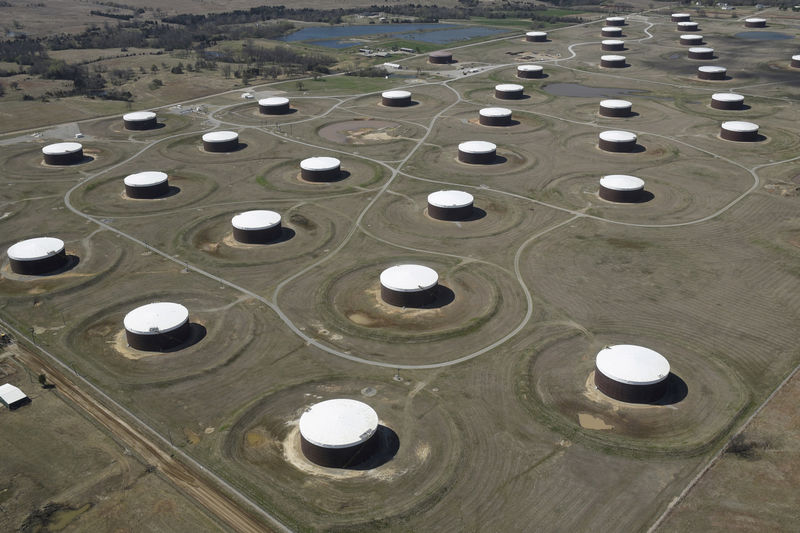By Liz Hampton
HOUSTON (Reuters) - The recent drop in U.S. oil prices to around $46 a barrel and insufficient demand are throwing into doubt the prospects for oilfield service companies in 2019 and may portend a wave of restructuring and consolidation of an industry still recovering from the 2014 downturn in energy markets.
Despite record U.S. oil production and exports, producers are reducing their spending and learning to do jobs with fewer crews. There has not been the wholesale staff cutbacks such as the ones that occurred three years ago, but investors and analysts expect consolidation in the services sector as work dwindles and share prices fall.
Even service companies that have strong businesses have been unable to get contract prices back to pre-crash levels. At onshore driller Scandrill Inc, all of its 15 rigs are active in U.S. oilfields. When two clients decided to stop drilling, new customers picked up the slack.
However, the rates that Scandrill charges for its rigs are below where they were at the depths of the 2014 oil price crash, said President Paul Mosvold.
"We won't see an increase in daily operating margin or the daily rig contracting rate soon," he said in a phone interview this month.
Some oil producers have cut services work. Diamondback Energy (N:FANG) this month released two of its 10 hydraulic fracturing crews and next year plans to operate between 18 and 22 drilling rigs, down from 24 rigs at work earlier this month.
Oilfield services company investors are cutting their holdings. The Philadelphia SE Oil Service Index (OSX), which tracks some of the largest oilfield service companies, this week fell below 81, the lowest since 2003 and below where it traded when oil prices crashed to near $26 a barrel in 2016.
With oil prices at their lowest level in over a year, the services sector should brace for a wave of restructurings and consolidation, analysts and attorneys told Reuters in interviews.
"The oilfield sector has the largest group of struggling companies within the energy industry. I think these companies need to consolidate, no matter what,” said Sean Wheeler, a mergers and acquisition attorney at law firm Kirkland & Ellis.
Wheeler has been fielding inquiries from service providers wanting to evaluate options for restructuring if prices do not recover.
Contract driller Parker Drilling (PK:PKDSQ) in December filed for pre-arranged bankruptcy after failing to earn an annual profit since 2014, when oil prices started a long decline.
One problem is the number of companies operating in the market, attorneys and analysts said. Competition for fewer jobs is making it hard for service companies to raise prices - something that is benefiting shale producers.
“The availability of frac crews is great for us,” said Bob Watson, chief executive of Abraxas Petroleum Corp (O:AXAS).
Watson said he was shocked recently when Abraxas received 15 bids for a one-well frack job in the Permian Basin of West Texas and New Mexico.
“We got a very good price," he said. "Things are slowing down on the completions side.”
The weaker outlook is pressuring shares of top oilfield firms. Schlumberger NV (N:SLB) and Halliburton Co (N:HAL) are trading below levels seen during the last oil-price downturn, and Weatherford International Plc (N:WFT) recently warned investors its shares could be delisted from the New York Stock Exchange if it can not lift its stock price above $1.

"There is a significant number of companies with liquidity and debt maturity issues," said Sajjad Alam, an analyst with debt ratings firm Moody's Investors Service.